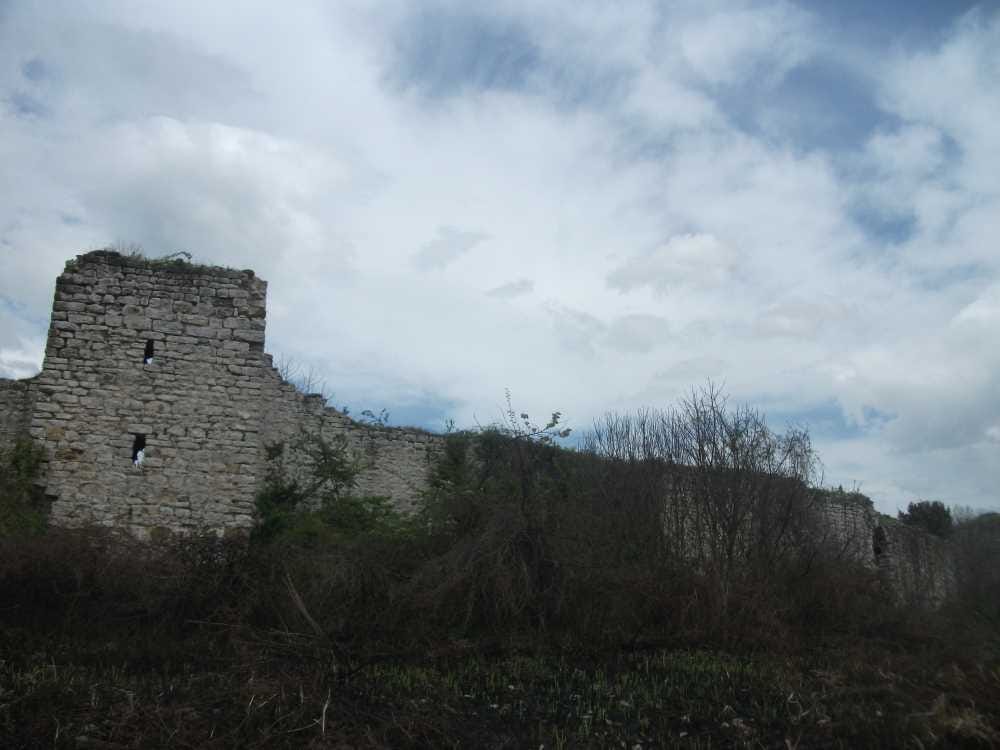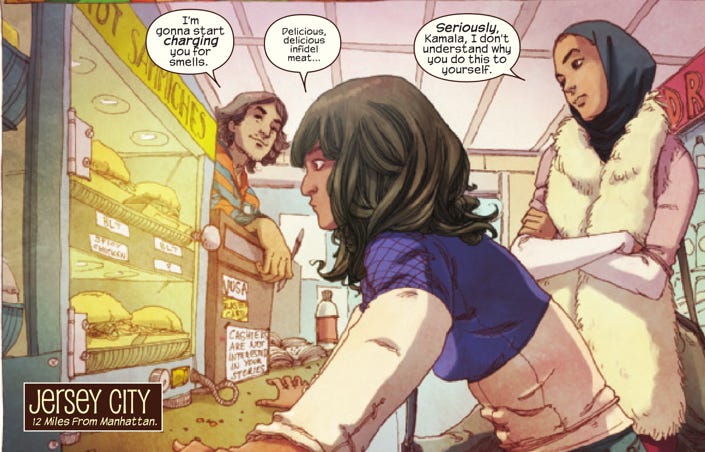My Review Of "The Guardian" Review of "Diriliş: Ertuğrul"
for funsies lets start this off like a LinkedIn thinkpiece: "In the depths of lockdown in 2020 I read an article that changed my life"
No seriously, this article really did change my life; it’s Aina J. Khan’s review of the Turkish TV series Diriliş: Ertuğrul, and it lead directly to the formation of this blog. You should go read it first. I’ll look at this picture of the late Ottoman-era Kapetanakis castle (Mani peninsula, Greece) while you’re gone.

Finished? Ok, we start in August of 2020. Australia was still successfully pursuing Covid-zero as a strategy. We weren’t going places anymore, and my wife and I were watching a lot more TV as a result. We liked historical dramas, and had been watching Outlander, the one about the woman who goes back in time to the Jacobite Rebellion in Scotland.
(As an aside, the first time I ever heard the phrase “The Battle of Culloden” was in regard to another TV show I watched a lot of, namely Doctor Who. One of the longest-running companions of the Doctor was the character “Jamie McCrimmon”, who joined the show when he was rescued from said battle; the one that effectively ended the Jacobite rebellion. And whaddyaknow: according to this article Jamie from Doctor Who was the inspiration for Jamie from Outlander)
(One more thing. If I’m going to talk about TV shows, I’ll have to come up with a policy about spoilers. Obviously the Statute of Limitations has expired for the outcome of the Battle of Culloden in 1745, but for anyone who might watch Ertuğrul or Outlander after this, I’ll try to keep the spoilers mild and vague.)
But enough digressions. We were done with Outlander for now, and casting about for something similar, when I read the Ertuğrul review. I used the comparison from the review, the “Muslim Game of Thrones”, when I pitched the series to my wife, and she was glad to give it a try.
Now I must note at this stage that we both loved Game of Thrones, which had finished the previous year. Ignoring for now the final season (and I think I’ll write a proper review some other time), I’ll always remember the bittersweet feeling each year when we sat down to watch a season finale, knowing it would be a whole year before we got the next installment.
We had to savour every episode of Game of Thrones because there wasn’t enough of it to satisfy us. Not so with Turkish TV, which works its employees incredibly hard. Game of Thrones consisted of 73 episodes of minimum 1 hour each, spread over 9 years (approx. 9 hours per year). Ertuğrul however, managed to put out 150 episodes, minimum 105 minutes each, over a 5.5 year period (approx. 48 hours per year). Even the pandemic didn’t slow them significantly until we got to the Omicron wave at the end of 2021, when a couple of shows had to go on hiatus for a few weeks due to big outbreaks among the cast, and for a while after that the storyline in Kuruluş: Osman seemed to be wandering aimlessly. They also take some time off for Ramadan, but probably not for bad weather; much of the show was filmed on the Black Sea coast of Istanbul where temperatures are more moderate than in the cold, snowy town of Söğüt where the Ottoman empire was officially founded.
(You want to know how to pronounce “Söğüt”? Just ignore the “soft g” in the middle for now; the first vowel rhymes roughly with “dough” and the second with “hoot”. Say it like “So-oot”, but join the vowels together smoothly in the middle with no obvious break, and that will be pretty close. Here’s a scene from the final episode of season 4, where Ertuğrul’s next two lines both begin with the word “Söğüt”.)

With such long episodes, you spend a lot of time with the characters. You see them born, grow up, marry, and die as martyrs (or occasionally of old age). You laugh and cry and go “aww” at their cute babies and shout at them “Omg how can you not see that your neighbour is a Mongol spy!”. The connection to the characters is the thing that keeps us watching year after year; like in a reality TV show only with swords.
More seriously, its not just swords but a full window into someone’s culture. The Guardian review quotes one Tausif Khan:
“If you’re white, you get Downton Abbey and all these period dramas,” he says. “Whenever I see historic dramas about British Asians, it’s always ‘poor Asians’ in the 1970s being attacked by the National Front. The only story we’re allowed to have is: ‘I’m so confused about my identity.’ Then you’ve got films like Blinded by the Light and The Big Sick, stories about a brown person who needs to marry a white person in order to be happy.
“Ertuğrul is the Muslim world’s Black Panther,” Khan adds. “It’s not because a Muslim audience is brainwashed by Islamic rhetoric. It’s because we want to see brown people on TV who are portrayed in a good light and are proud of their culture.”
Even with all the all the efforts since then to promote diverse voices in TV and the arts in general, the problem persists. Disney+ has been rolling out TV shows in the Marvel Cinematic Universe, beginning with the excellent Wandavision. The most recent addition is Ms. Marvel, the story of a 16-year-old Pakistani-American who, to quote wikipedia, “struggles to fit in until she gains her own powers”. While this is an important story to be told, particularly to any young American Muslims who may feel similarly, its the same narrow ‘I’m so confused about my identity’ focus that Khan complains about above. From a negative review of Ms. Marvel, by Boingboing’s Devin Nealy:
Sure, a lot of characters say "bismillah" and "astaghfirullah" in Ms. Marvel, but the show continues the trope of Muslim American characters that bemoan their faith because it prevents them from enjoying the modern wonders of Western culture.

And its incredibly important that we get some positive representation of Muslims to counteract the horrible baggage from The War on Terror and disastrous wars in Iraq and Afghanistan. Obviously, shouting “Allahu akbar!” in any crowded place here in the West would get you arrested or shot much quicker than shouting “God is the greatest!”, even though they share the same meaning. I had the experience of passing through multiple American airport security screenings with a former boss who happened to have brown skin, and although we were dressed much the same and travelling business class, I invariably got through security much quicker than he did, and had to wait around for him on the other side. As Paul Tassel from Forbes notes, Ms. Marvel was review-bombed on IMDB, likely “because of the core identity of the character including her race and religion”, and he apparently saw evidence of closed Facebook groups decrying a Muslim superhero as “an assault on Christian values.”
Here in Australia we are stuck with Pauline Hanson. If you haven’t heard of her, she’s an elected Senator who occasionally gets a bee in her bonnet about immigrants, “Asians”, Muslims and the like. Here’s a clip of a thorough smackdown by former Attorney General George Brandis, after one of her more famous stunts in parliament.
Thing is though, she keeps being re-elected (this last time was close though, as reported a week ago). People vote for this Islamophobia stuff, and I reckon its mostly fear of the unknown. Growing up, I had religious education one lesson a week in school. We didn’t take it very seriously, but one time they asked for feedback, and we asked for comparative religion, to learn about something other than Jesus for once. What we got was pretty useless, I’m sure because the teacher (a Christian) didn’t know anything himself. If I had grown up watching the occasional Turkish warrior shouting “Allahu akbar!”, then breaking their Ramadan fast by saying “Bismillah” and eating a single date, then to paraphrase the eloquent words of The Everywhereist, the only strange thing about it would be that it wasn’t strange at all.
How to watch Diriliş: Ertuğrul: you can get it on Netflix, or watch it for free on the official Youtube channel. The first few seasons have decent English subtitles, starting with Season 1 here.
(You want to know how to pronounce “Ertuğrul”? As a rough first attempt, “Heir to rule” is reasonably close, and a half-decent mnemonic too. If you want to get the vowels exactly right, the “E” is a bit more like the “A” in “Ann”, and the “u”s are more like the “oo” in “book”. Its hard to find a good clip where someone pronounces it nice and slow; the best I can find is Tuğtekin shouting it, thrice in a row, here. Notice that if you say “Heir to rule” in English, the first and third syllables are emphasised. Emphasis in Turkish is different to English and therefore complicated to explain, but try to give the the syllables close to equal stress.)
(If you don’t mind the spoilers for Season 2, the rest of that clip with Tuğtekin is fantastic. From the Mongol leader Noyan’s anime run at the start (no wonder he is out in front), to the look on Samsa’s face at the betrayal (timestamp 1:53), through more crazy shaman dancing from Ulubilge, to Noyan’s favourite nickname for Tuğtekin (“Ateşli Oğlan”, or “Fiery Boy”, timestamp 8:32) this has some great moments with one of the show’s best villains. Note Google Translate occasionally offers “Furious Boy” instead of “Fiery Boy”, and that fits his character so well. Allah rahmet eylesin, Furious Boy.)


